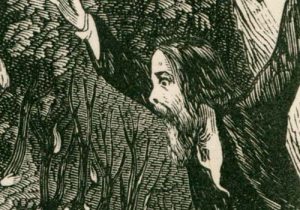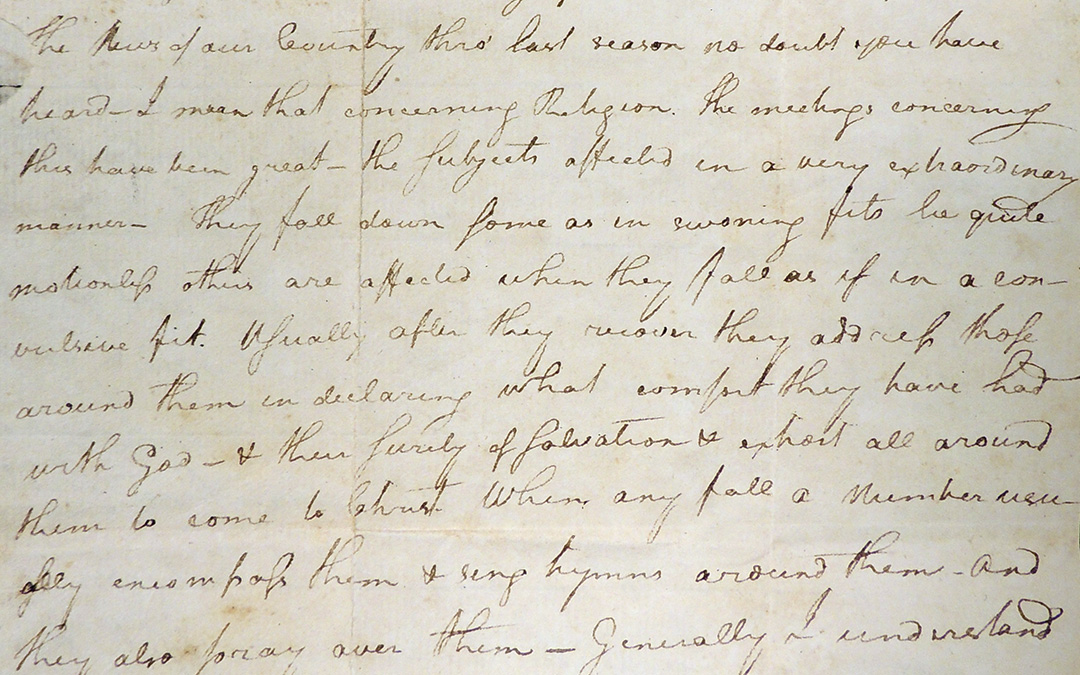
1802-1804, Correspondence, Presbyterians, Western Kentucky University
“The news of our Country thro’ last season no doubt you have heard. I mean that concerning Religion. The meetings concerning this have been great. The Subjects affected in a very extraordinary manner. They fall down some as in swoning fits be quite motionless. Others are affected when they fall as if in a convulsive fit….”
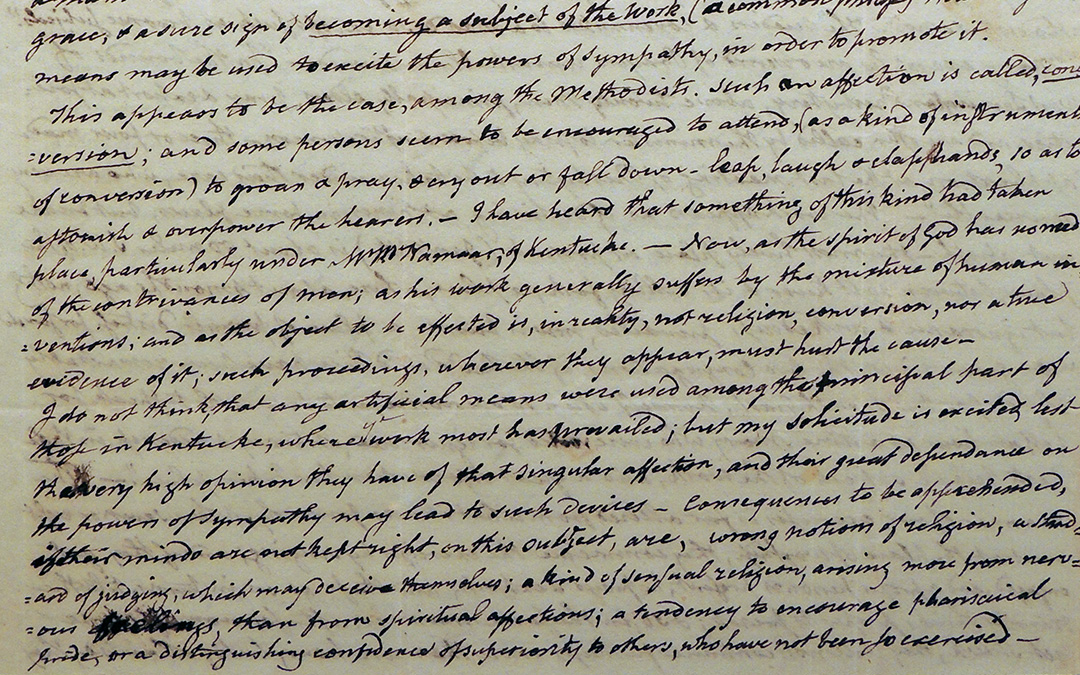
1802-1804, Correspondence, Falling Exercise, Historical Society of Pennsylvania, Presbyterians
“I was lately informed by a neighbour of mine, just returned from the Miami country, where Mr. McNamaar is now settled (he lately moved from Kentucke) that at such meetings there, they who fall down are strongly convulsed, and so violently agitated, that it will require two or three to hold one of them….”
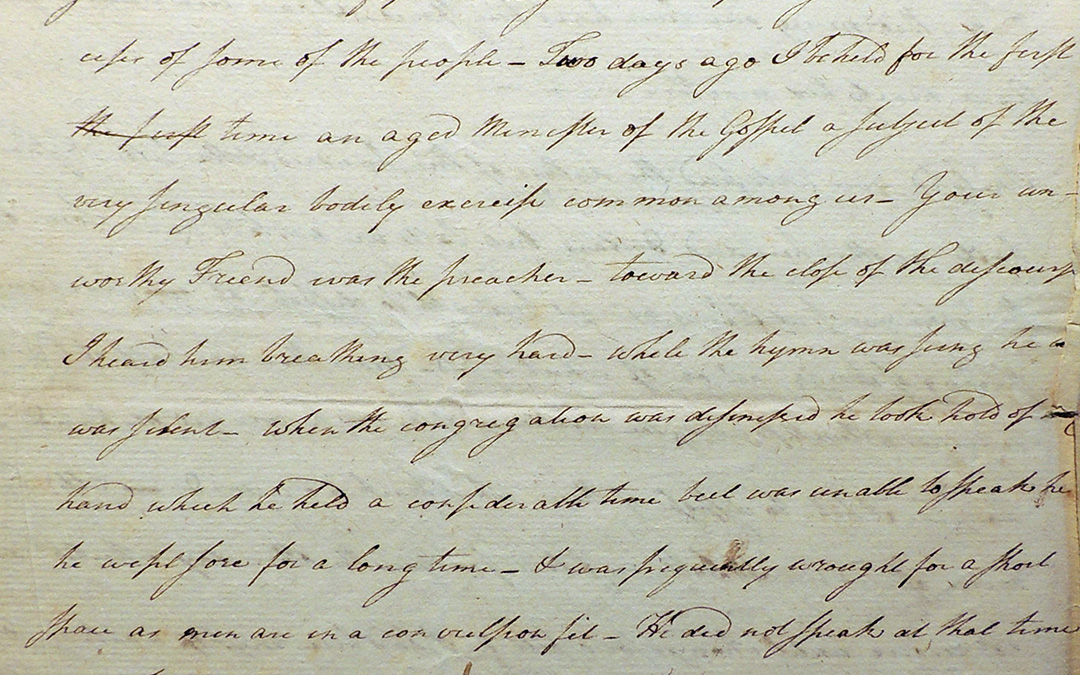
1802-1804, Correspondence, Falling Exercise, Historical Society of Pennsylvania, Presbyterians, Robert G. Wilson
“Two days ago I beheld for the first time…a subject of the very singular bodily exercise common among us…. He wept sore for a long time, & was frequently wrought for a short space as men are in a convulsion fit….”
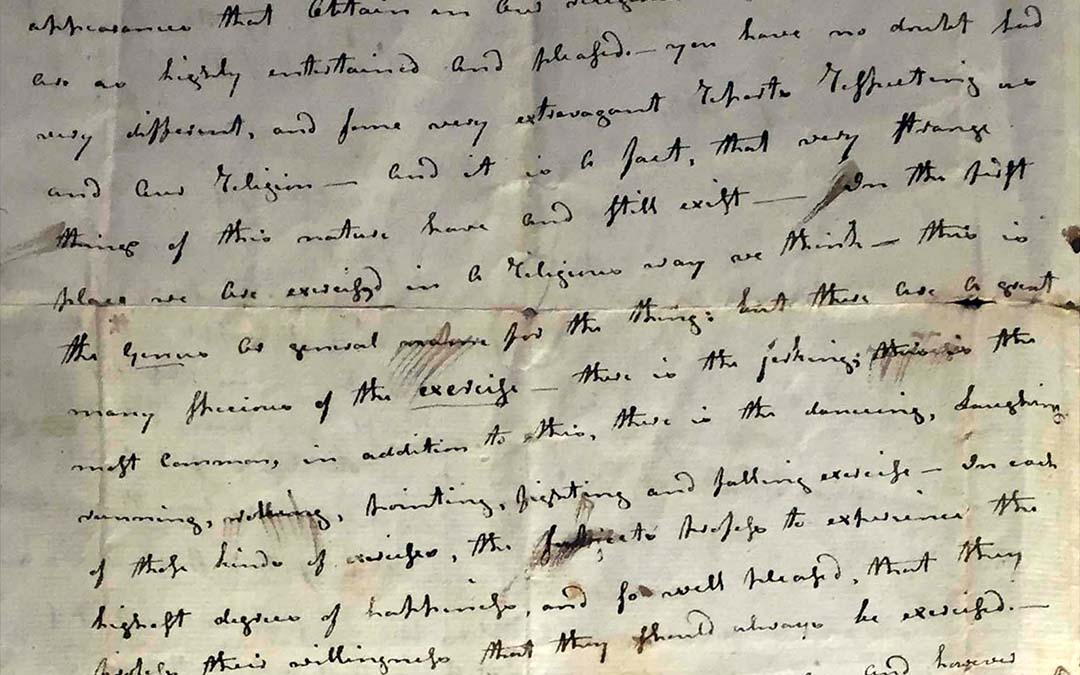
1802-1804, Correspondence, Dancing Exercise, Falling Exercise, Laughing Exercise, Other Bodily Exercises & General References, Presbyterians, Samuel G. Ramsey
“[W]e Are exercised in A religious way we think. This is the Genus As general name for the thing; but there Are A great many specimens of this exercise. There is the jerking; this is the most Common. In addition to this, there is the dancing, Laughing, running, walking, pointing, fighting and falling exercise….”
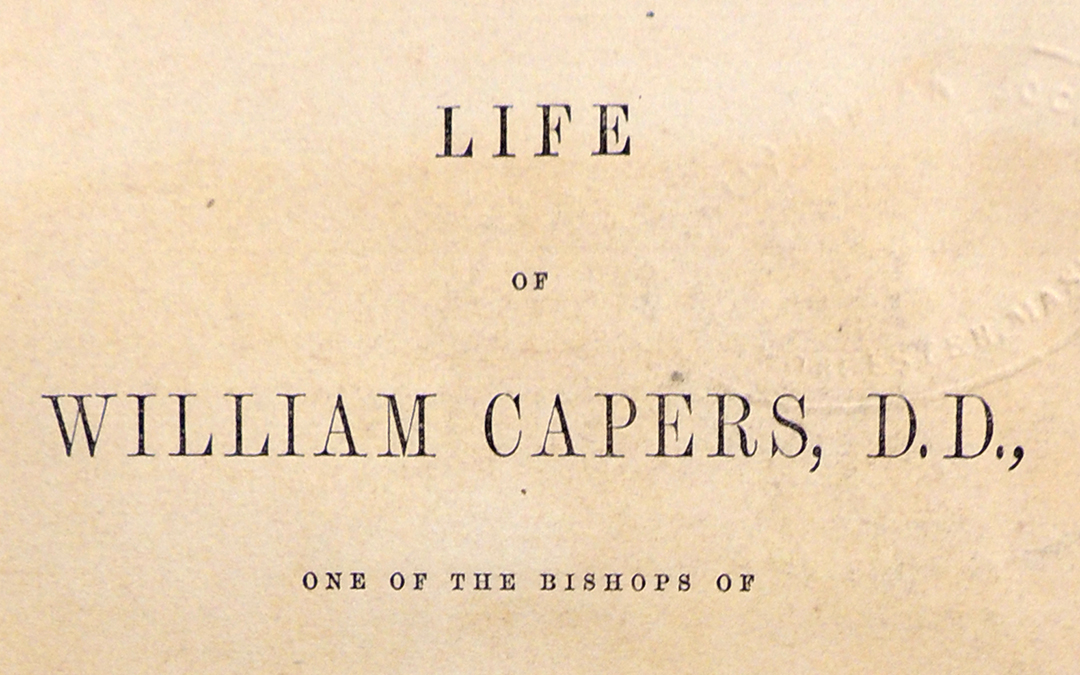
1802-1804, American Antiquarian Society, Autobiographies & Biographies, Dancing Exercise, Falling Exercise, Methodists, Running Exercise
“[P]ersons who were not before known to be at all religious…would suddenly fall to the ground, and become strangely convulsed with what was called the jerks; the head and neck, and sometimes the body also, moving backwards and forwards with spasmodic violence, and so rapidly that the plaited hair of a woman’s head might be heard to crack….”





